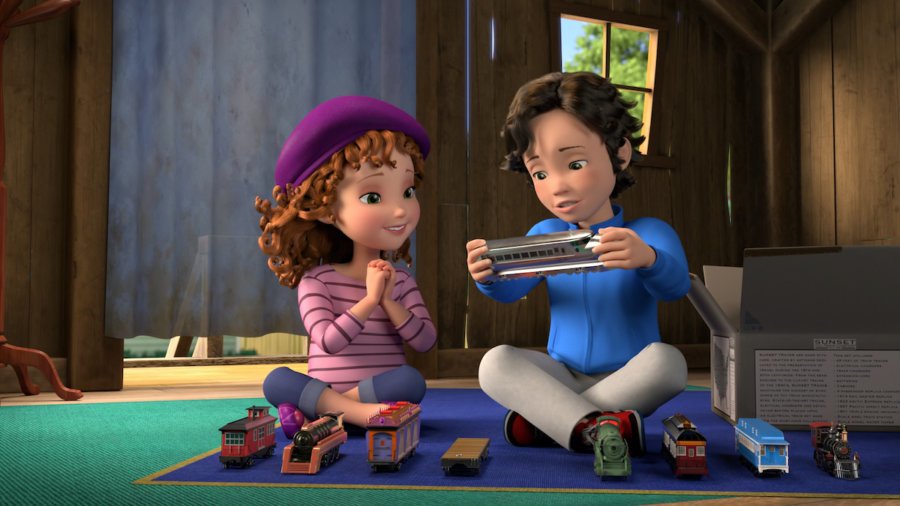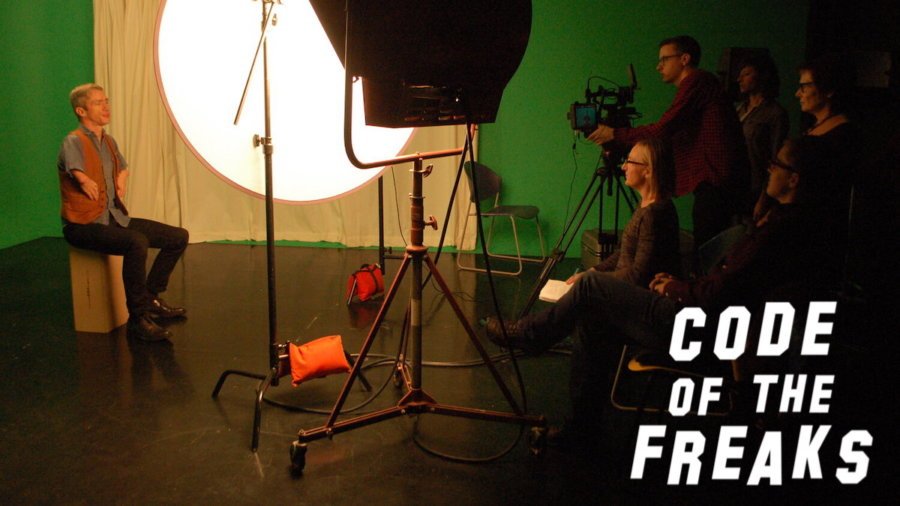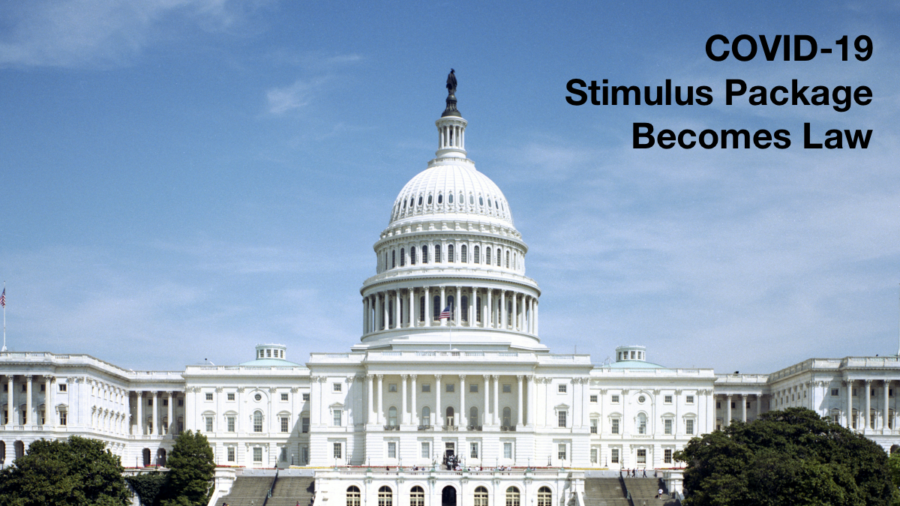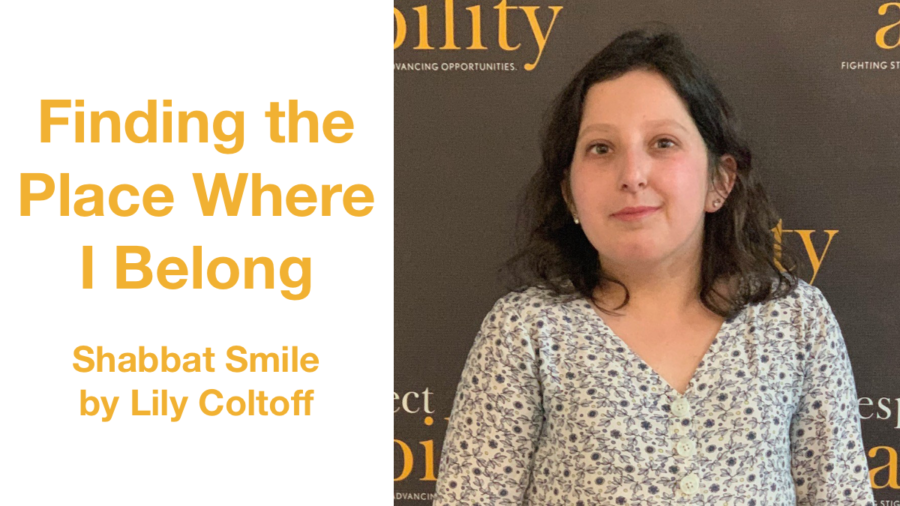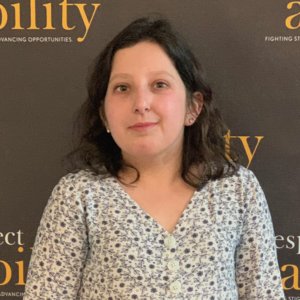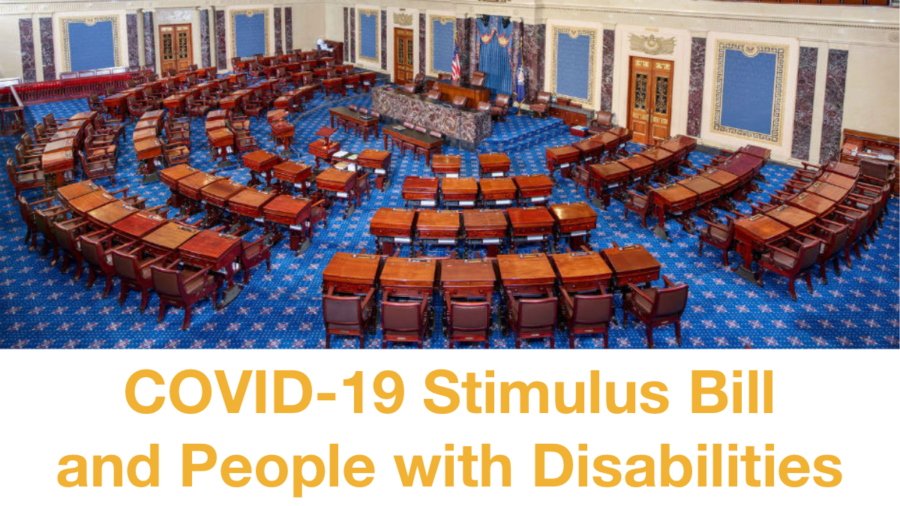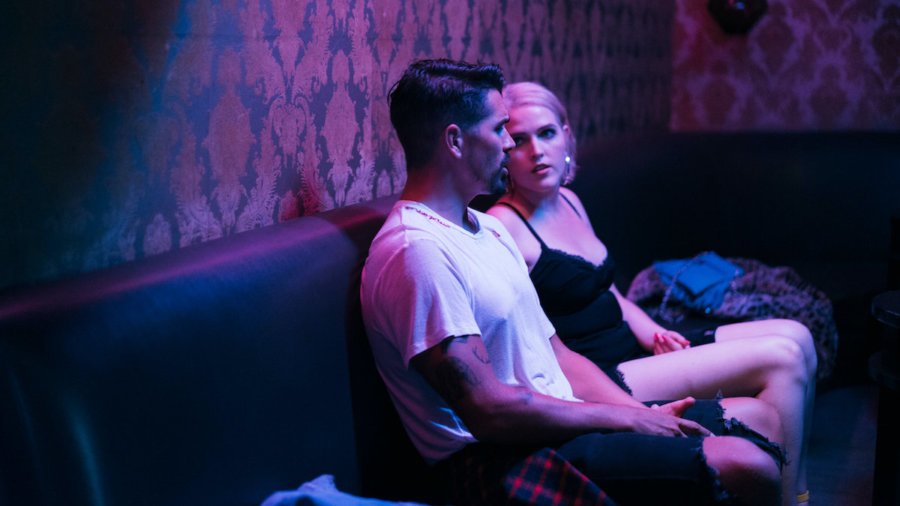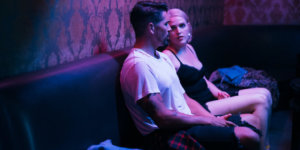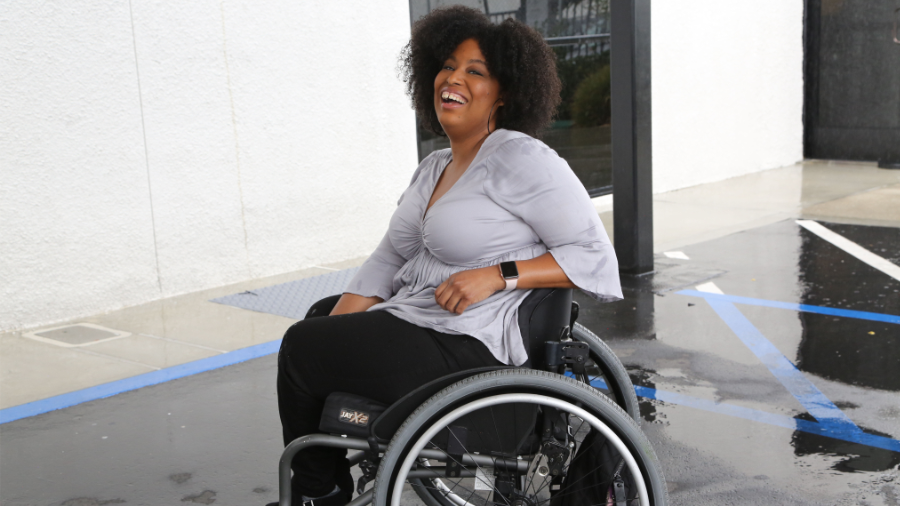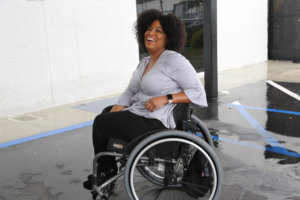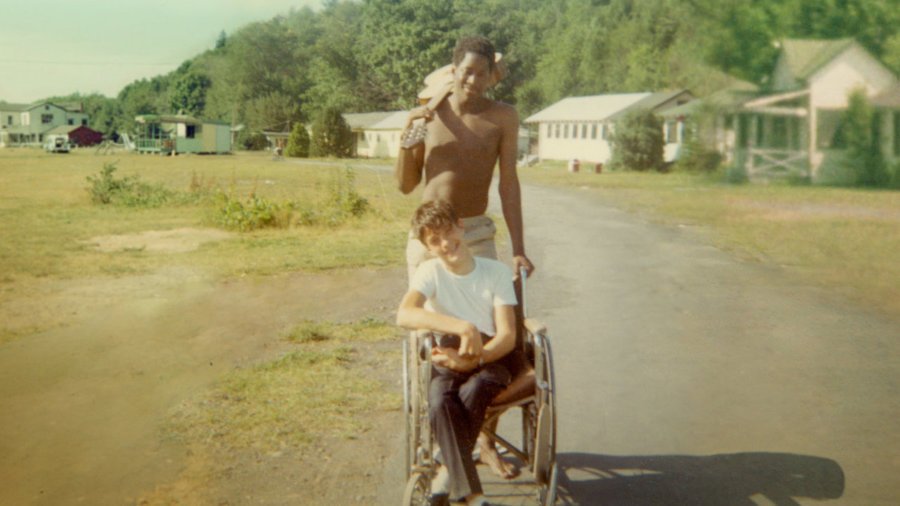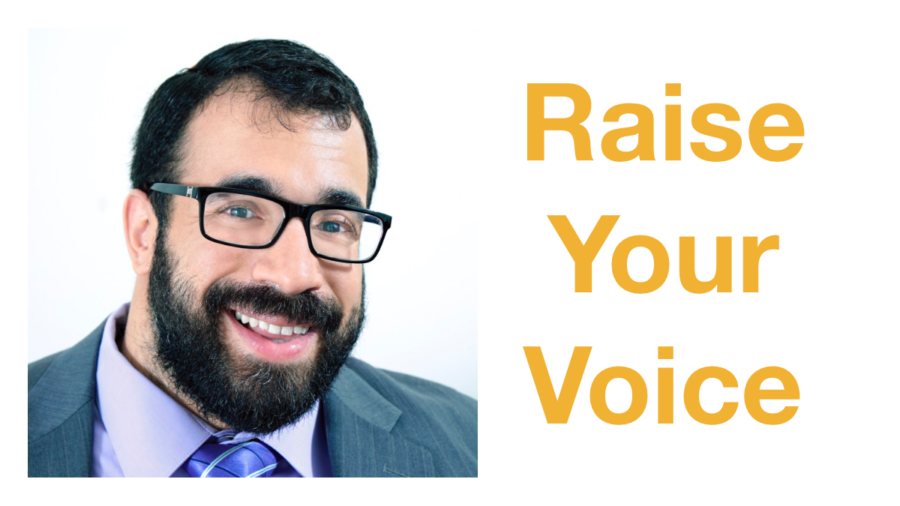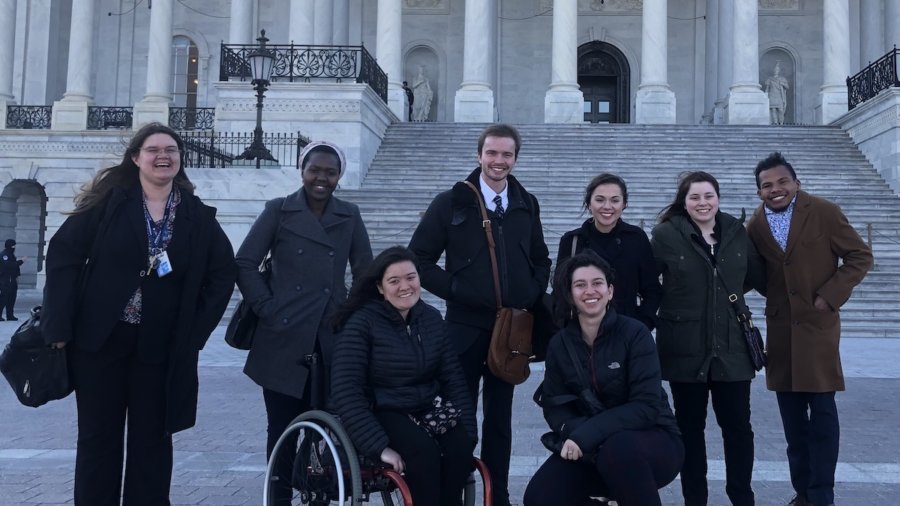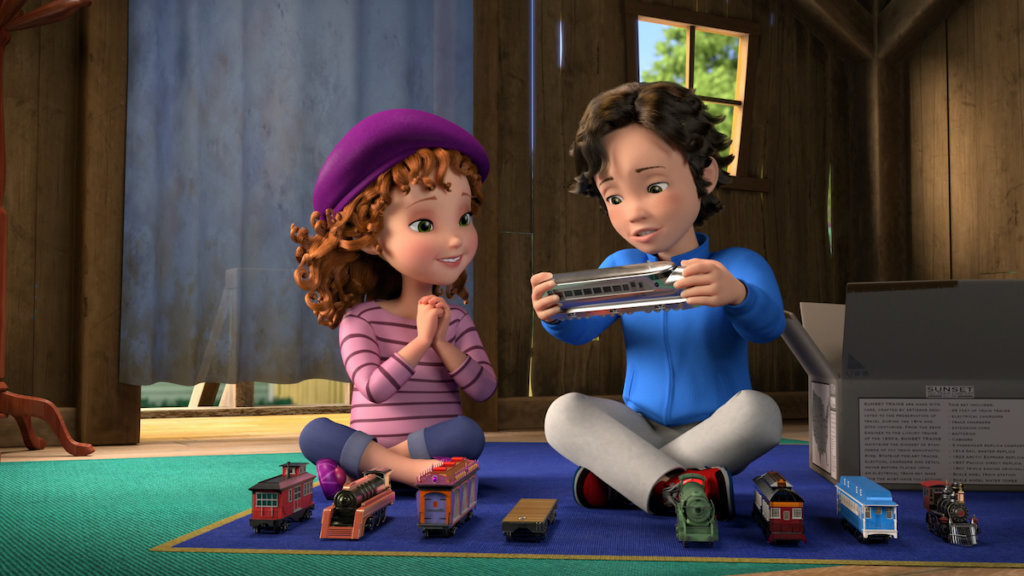
FANCY NANCY – “Nancy’s New Friend” – Nancy learns about autism when she befriends Lionel’s favorite cousin Sean. This episode of “Fancy Nancy” airs Thursday, April 2 (8:00-8:30 A.M. EDT) on Disney Channel. (Disney Junior)
Los Angeles, California, April 1 – With one-in-five people having a disability in the U.S. today, the lack of representation – just 3.1 percent on primetime television and even less in children’s television (less than one percent) – means that millions of people are unable to see themselves in media today. Disney Junior’s Fancy Nancy is hoping to buck that trend in a new episode, “Nancy’s New Friend.” Nancy is excited to meet her friend Lionel’s favorite cousin Sean, who is on the Autism spectrum. But Nancy does not understand why Sean does not respond to him and needs to learn how to connect with Sean in a different way than she does with other friends.
“We hope this episode will help our viewers understand that there are sensitivities to be mindful of when engaging with someone who has autism,” said Fancy Nancy co-producer/head writer, Krista Tucker. “People with autism may act in ways we feel are different, and that’s okay—they’re just being who they are. In a world where so many children interact with kids who have autism, this kind of understanding creates compassion, tolerance and friendship. Most importantly, it creates a world that is kind and accepting of all of us.”
The episode, which airs on Thursday, April 2 at 8:00 a.m. ET, is timed to celebrate World Autism Awareness Day. [continue reading…]


